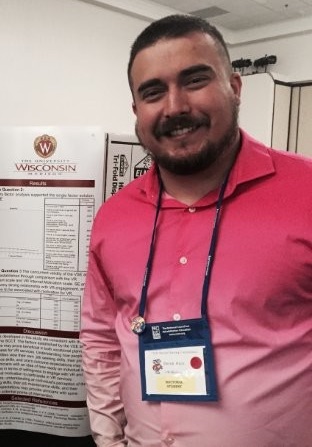Dr. Derek Ruiz

Derek Ruiz, received his bachelor’s degree in psychology from Washington University in St. Louis. He then worked for the State of Texas at Austin State Supported Living Center as a psychology and psychiatry assistant. Of particular focus during this time was the psychosocial development of the clients under his care. He then pursued a Master’s in Rehabilitation Counseling from Illinois Institute of Technology. During which he interned at Thresholds Chicago and Asian Human Services.
These internships focused on multiple minority populations in psychiatric recovery, substance abuse recovery, recovery from HIV, or a combination of the three. The researcher pursued his Ph.D. in Rehabilitation Psychology at the University of Wisconsin-Madison and has doctoral level experience counseling at Mendota Mental Health Hospital and Journey Mental Health and Wellness Center. The master’s level students
Research interests include, the psychosocial adjustment to disability, and specifically, self-efficacy, sexuality, and stigma related to disability. Research interests intersect with personal interests specifically regarding intimacy and sexuality for people with multiple minority statuses. He has had the privilege of working with several researchers who have studied sexuality and intimate relationships. Additionally, he has worked as a youth outreach counselor at OutReach! Austin, an LGBT youth outreach program in Austin, Texas. Finally, he has also been awarded a scholarship for a suicide education and prevention program developed and targeted at subgroups in the LGBT population.
Currently, Derek Ruiz is employed at Southern University as an assistant professor within the Rehabilitation and Disability Studies Department under the College of Nursing and Allied Health. He is currently participating actively in the CACREP accreditation process, interviewing and measuring master’s level professional dispositions, and advisement of undergraduate and graduate students.
While the learning objectives have varied across the different courses, my ultimate goal of encouraging students to be active participants, rather than passive recipients, in learning has been present across all courses. Recently I have been fascinated by, and experimenting with, flipped classrooms for my master’s level students. The flipped classroom provides a novel way to inject self-determination into the learning environment, a trait that I have embraced by focusing on student autonomy, belonging, and competence. My ultimate hope is to further my teaching style in both traditional, online, and blended formats to assist student cultivation of a similar passion for learning that I have come to develop, as well as encourage the growth of intrinsic motivation that overshadows extrinsic values (McKeachie & Svinicki, 2006). I will always strive to improve my teaching through workshops, research, and continued course development. I have made it a practice to seek regular and systematic feedback throughout the semesters, as opposed to the traditional model of receiving feedback at the end, as means of self-evaluation to continue to improve my pedagogy as an instructor.
I make it a goal to promote student learning and motivation by providing clear goals, objectives, and policies as well as an emphasis on the relevance of topics and their application outside of the classroom. Helping students appreciate the relevance and possible applications of a topic can result in increased motivation for learning (Kember & McNaught, 2007). I emphasize the why, in addition to the what, of a learning goal or objective knowing that it equips students to act autonomously in ways that supports their growth and education. Autonomy is supported when students work under the belief that meaningful learning takes place both inside and outside of the classroom. The basis of the flipped classroom is providing students with meaningful work they can do on their own and engaging them more dynamically in the classroom as a means of solidifying understanding and engaging with the material differently than traditional lectures.
